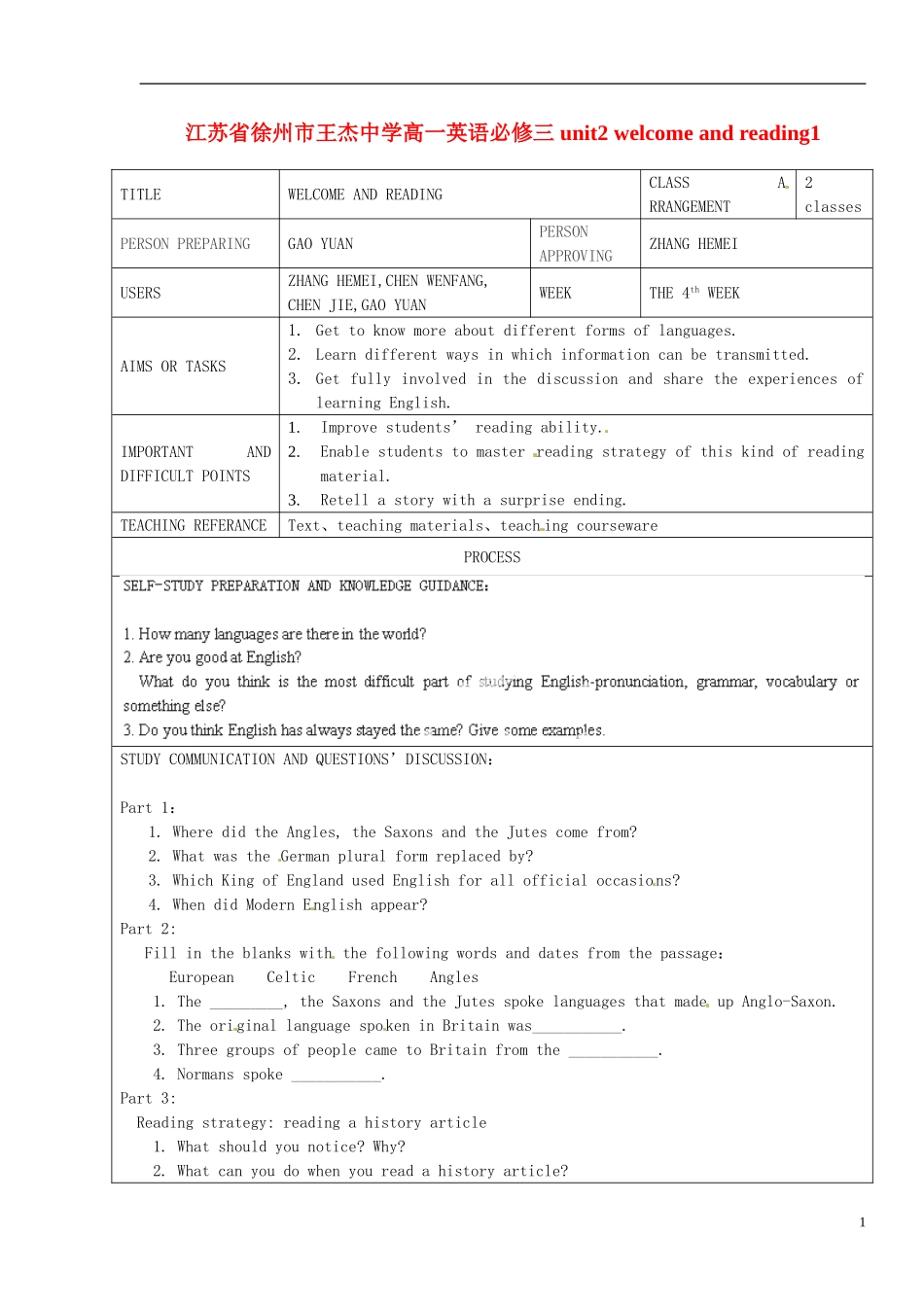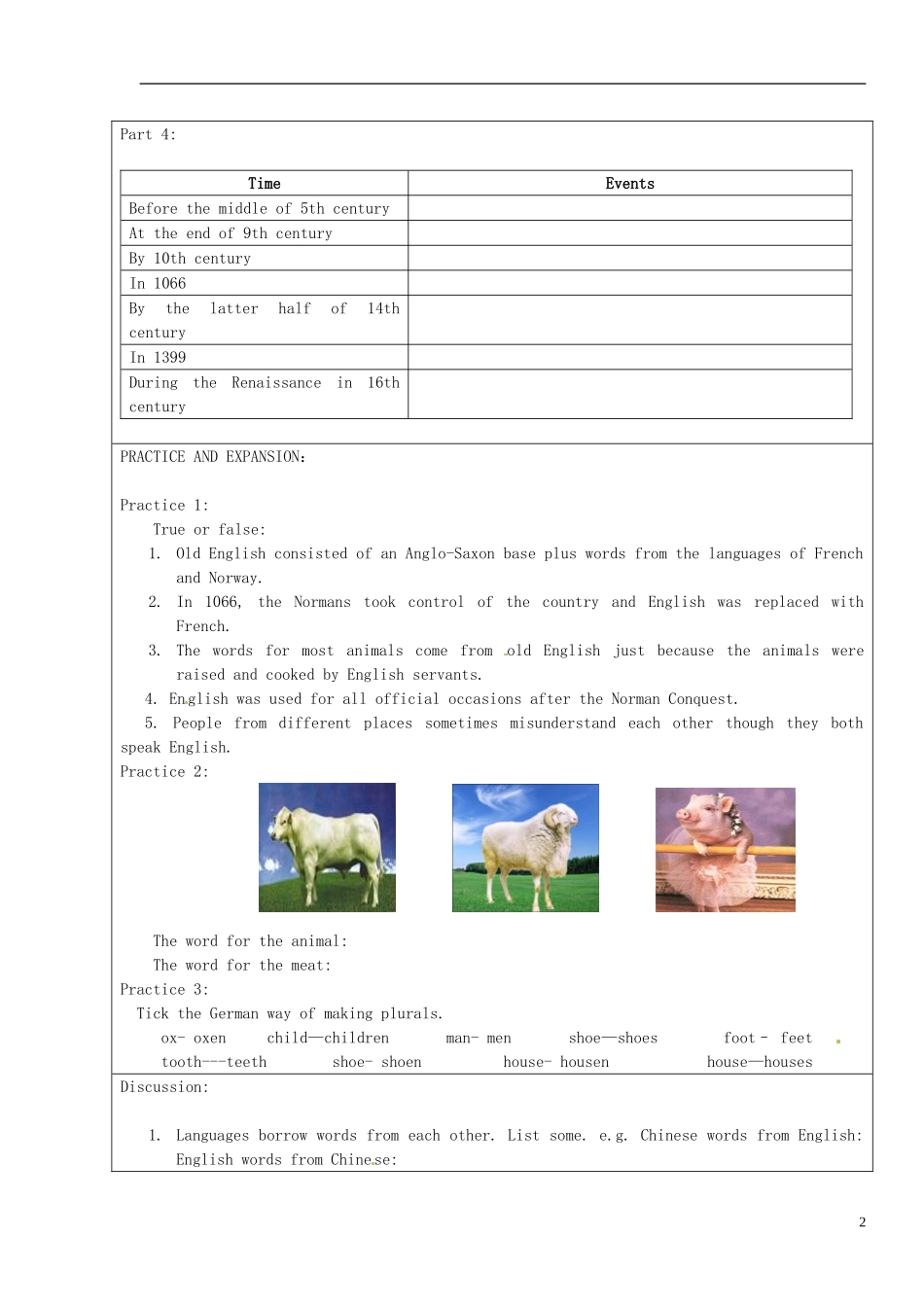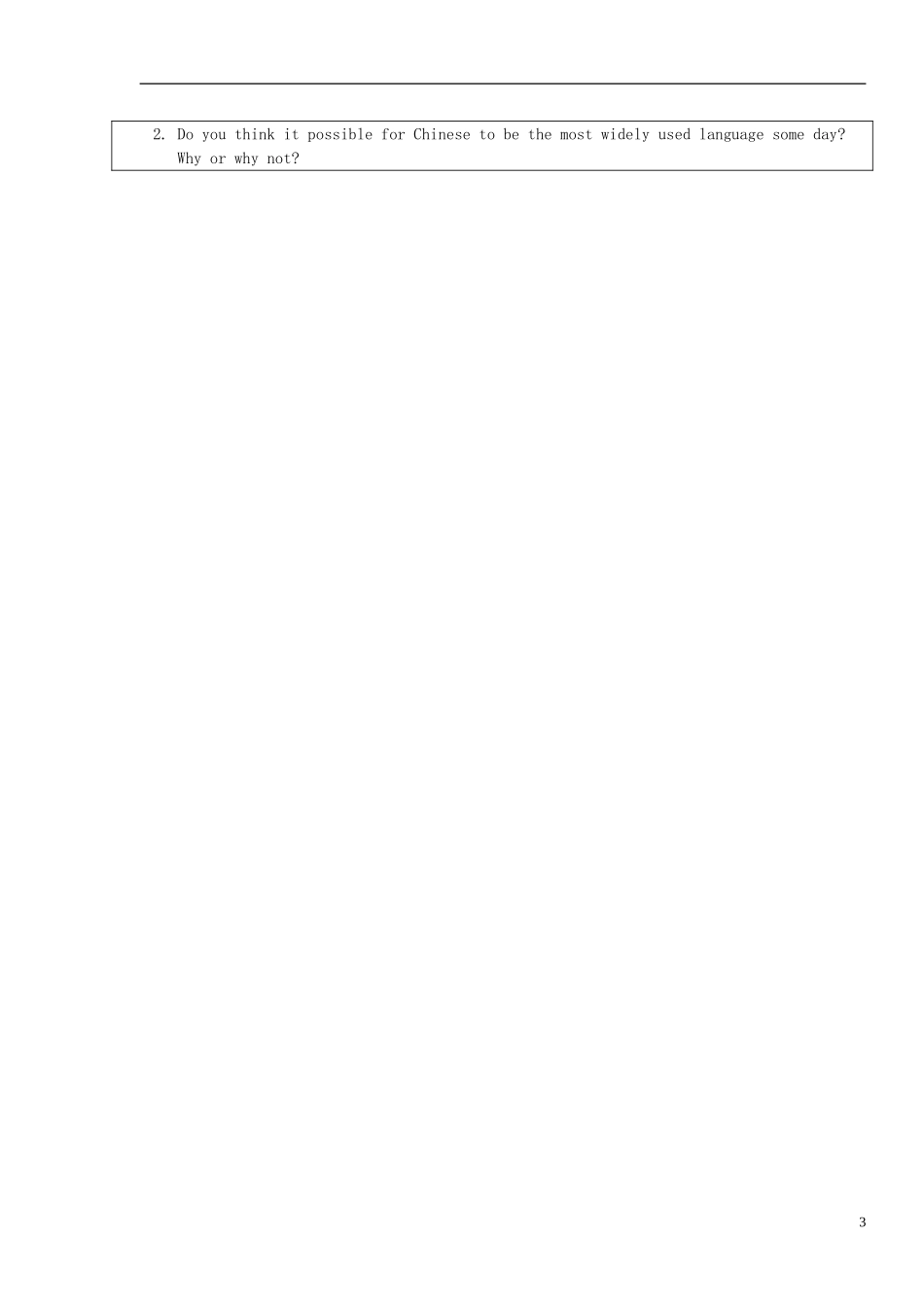江苏省徐州市王杰中学高一英语必修三 unit2 welcome and reading1TITLEWELCOME AND READINGCLASS ARRANGEMENT2 classesPERSON PREPARINGGAO YUANPERSON APPROVINGZHANG HEMEIUSERSZHANG HEMEI,CHEN WENFANG,CHEN JIE,GAO YUANWEEKTHE 4th WEEKAIMS OR TASKS1. Get to know more about different forms of languages.2. Learn different ways in which information can be transmitted. 3. Get fully involved in the discussion and share the experiences of learning English.IMPORTANT AND DIFFICULT POINTS1.Improve students’ reading ability.2.Enable students to master reading strategy of this kind of reading material.3.Retell a story with a surprise ending.TEACHING REFERANCEText、teaching materials、teach ing coursewarePROCESSSTUDY COMMUNICATION AND QUESTIONS’DISCUSSION:Part 1:1. Where did the Angles, the Saxons and the Jutes come from?2. What was the German plural form replaced by?3. Which King of England used English for all official occasions?4. When did Modern English appear?Part 2: Fill in the blanks with the following words and dates from the passage:European Celtic French Angles1. The _________, the Saxons and the Jutes spoke languages that made up Anglo-Saxon.2. The original language spoken in Britain was___________.3. Three groups of people came to Britain from the ___________.4. Normans spoke ___________.Part 3: Reading strategy: reading a history article1. What should you notice? Why?2. What can you do when you read a history article?1Part 4: TimeEventsBefore the middle of 5th centuryAt the end of 9th centuryBy 10th centuryIn 1066By the latter half of 14th century In 1399During the Renaissance in 16th centuryPRACTICE AND EXPANSION:Practice 1: True or false:1. Old English consisted of an Anglo-Saxon base plus words from the languages of French and Norway.2. In 1066, the Normans took control of the country and English was replaced with French.3. The words for most animals come from old English just because the animals were raised and cooked by English servants.4. English was used for all official occasions after the Norman Conquest.5. People from different places sometimes misunderstand each other though they both speak English.Practice 2: The word for the animal:The word for the meat:Practice 3: Tick the German way of making plurals. ox- oxen child—children man- men shoe—shoes foot– feet tooth---teeth shoe- shoen house- housen house—houses Discussion:1. Languages borrow words from each other. List some. e.g. Chinese words from English: English words from Chinese:22. Do you think it possible for Chinese to be the most widely used language some day? Why or why not?3


